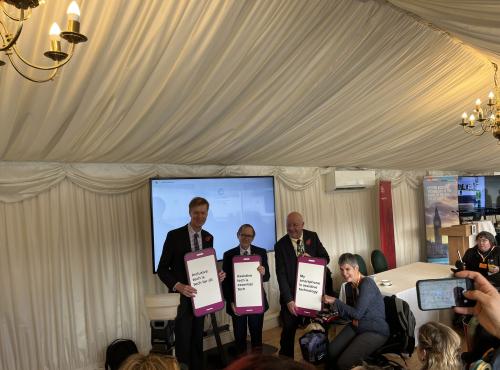51% of people say that they can’t trust their doctor to deal with their chronic pain
What over 1,000 people said about the medication they take to manage their chronic pain
The Chief Medical Officer’s annual report for 2008 said pain can be so severe that a quarter of people with chronic pain lose their jobs because of their ill health.
Beyond the impact on the person living with pain is the concern for wider society.
What happens when a large portion of the population is unable to use their talents and skills? What happens when more people are reliant on benefits to survive?
Survey Findings
Over 1,000 people took part in a survey designed by the Chronic Pain Policy Coalition and hosted by talkhealth.
The results paint a stark picture of just how difficult it is to live with chronic pain, with medication side-effects reported and often little or no review by a healthcare professional taking place on a regular basis.
With 87% of respondents saying they visit their GP to help them, the GP is clearly the go-to for people to advise them on their chronic pain issues - but shockingly, 51% of people felt that their GP didn’t understand how to treat chronic pain. This could be for a variety of reasons, but clearly, patient confidence needs to be improved.
Speaking to the Lancet in December, Dr Frances Cole, a general practitioner who specialises in pain rehabilitation and the co-author of the Pain Toolkit offered some insight into this problem when she said “Medics are operating on a biomedical model, which is completely out of date… We are using inappropriate approaches and it’s chaotic.”
But there are lots of issues that face people with chronic pain. A lot of patients struggle with the medications that they’re prescribed, which many end up addicted to. The survey results helped to shed some light on this by reporting that 87% of respondents said that they take regular medication to manage their condition, and 63% said that they suffer side effects of their pain medication, with some of these side effects sometimes worse than the pain causing condition itself. Surely reviewing patients annually helps the patient, the GP and wider society?
One of the Chronic Pain Policy Coalition’s key concerns is that those who live with pain are not regularly reviewed. This concern was cemented: in total, nearly a quarter of respondents said that they hadn’t had any kind of review for a year or more, with a staggering 12% saying that had never had their medication properly reviewed.
Next Steps for Chronic Pain: Improving Lives Green Paper
Beyond working with organisations like talkhealth, the CPPC works closely with its Parliamentary Champions, John Cryer MP and Lord Luce, to help increase awareness of issues facing those living with chronic pain. In November 2016, the CPPC backed an Early Day Motion published by John Cryer MP in Parliament calling for annual reviews with a healthcare provider, particularly for those people prescribed opioid based medications such as morphine. It’s hoped that by taking a regular and more holistic approach to pain management that both the patient and the healthcare provider will be better off.
In October last year, Lord Luce, held a debate about the issue of chronic pain and the Fit for Work scheme, pointing to areas of the scheme that could be reconsidered in order to work properly and help people with a variety of long-term health conditions get back to work with an improved sense of wellbeing and purpose.
The Improving Lives: Work, health and disability green paper was published late last year and the CPPC is now submitting evidence to the Department for Work and Pensions, raising some key areas for improvement, which will be based in part on the results of the survey. These suggested improvements will be around how specific GP reviews for pain might be able to help increase awareness of the Fit for Work scheme and how closer monitoring of pain might mean that more people living with chronic pain could, with the right support, return to the workplace.
The result of the green paper is yet to be seen but many in the pain community hope that positive changes are coming, for the person in pain, the doctors and health workers that support them, and for society as a whole. There can be no doubt - surveys like this, which ask patients for direct feedback, should be the foundation of any chronic pain policy.



